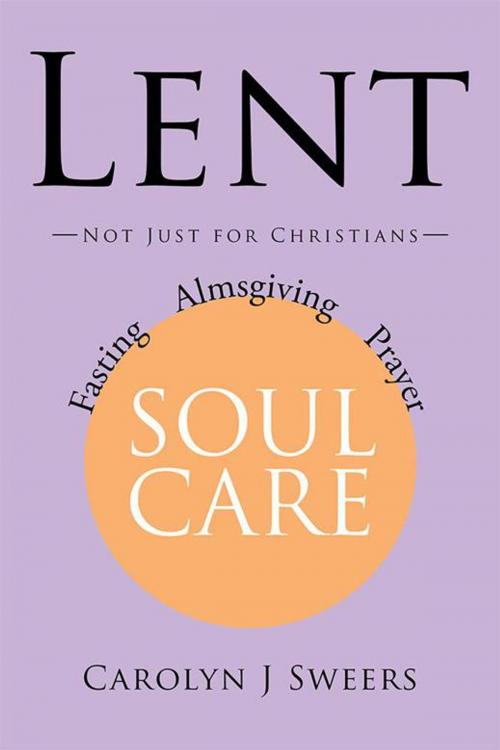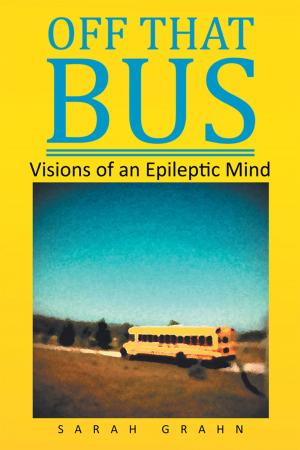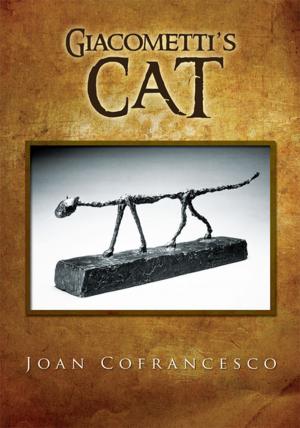| Author: | Carolyn J Sweers | ISBN: | 9781524523992 |
| Publisher: | Xlibris US | Publication: | July 13, 2016 |
| Imprint: | Xlibris US | Language: | English |
| Author: | Carolyn J Sweers |
| ISBN: | 9781524523992 |
| Publisher: | Xlibris US |
| Publication: | July 13, 2016 |
| Imprint: | Xlibris US |
| Language: | English |
This book began in Lent as a way to continue my own engagement with the season. I am by temperament and training a philosopher whose life and work have been shaped by moments of mystic communion with that which cant be adequately described or named and is, I presume, what is pointed to by the word god. I have, wherever possible, used a word other than god to refer to the framing mystery of our livesthe horizon that draws us toward reverence, humility, and compassion. The challenge I posed for myself was to try to describe the Lenten practices in the way I have experienced thema way I hope will be useful for any spiritual seeker as well as not opposed to Christianity for those who actively participate in that tradition. To that end, I have attempted to explore ways in which Lent, a season in the Christian year, has universal applications for human life and development. This book attempts to enunciate ways in which the season itselfwith its impetus, its dynamics, and its practiceshas a significance and a usefulness that is more universal than that of any single religious tradition. I am indebted to Hinduism for its understanding of renunciation as giving up the lesser for the sake of the greater. I am indebted to Buddhism for its insights about how the mind works and how it can be trained to be more present and compassionate. And I am indebted to the Catholic Eucharist, where the transforming vision is not only celebrated but also eaten as food. A word about style: the primary purpose of the book is to evoke, not to explain. That is why there are wide margins and a limited number of words per page. To get the most value from this book, there must be engagement, dialogue with, and reflection on ones own experiences as well as on the spiritual truths found in the worlds religions. The most important words in the book may be the ones the reader writes in the margins or in a journalan evoked response to the printed words. In that way, Lent can become a lived experience not just for Christians.
This book began in Lent as a way to continue my own engagement with the season. I am by temperament and training a philosopher whose life and work have been shaped by moments of mystic communion with that which cant be adequately described or named and is, I presume, what is pointed to by the word god. I have, wherever possible, used a word other than god to refer to the framing mystery of our livesthe horizon that draws us toward reverence, humility, and compassion. The challenge I posed for myself was to try to describe the Lenten practices in the way I have experienced thema way I hope will be useful for any spiritual seeker as well as not opposed to Christianity for those who actively participate in that tradition. To that end, I have attempted to explore ways in which Lent, a season in the Christian year, has universal applications for human life and development. This book attempts to enunciate ways in which the season itselfwith its impetus, its dynamics, and its practiceshas a significance and a usefulness that is more universal than that of any single religious tradition. I am indebted to Hinduism for its understanding of renunciation as giving up the lesser for the sake of the greater. I am indebted to Buddhism for its insights about how the mind works and how it can be trained to be more present and compassionate. And I am indebted to the Catholic Eucharist, where the transforming vision is not only celebrated but also eaten as food. A word about style: the primary purpose of the book is to evoke, not to explain. That is why there are wide margins and a limited number of words per page. To get the most value from this book, there must be engagement, dialogue with, and reflection on ones own experiences as well as on the spiritual truths found in the worlds religions. The most important words in the book may be the ones the reader writes in the margins or in a journalan evoked response to the printed words. In that way, Lent can become a lived experience not just for Christians.















